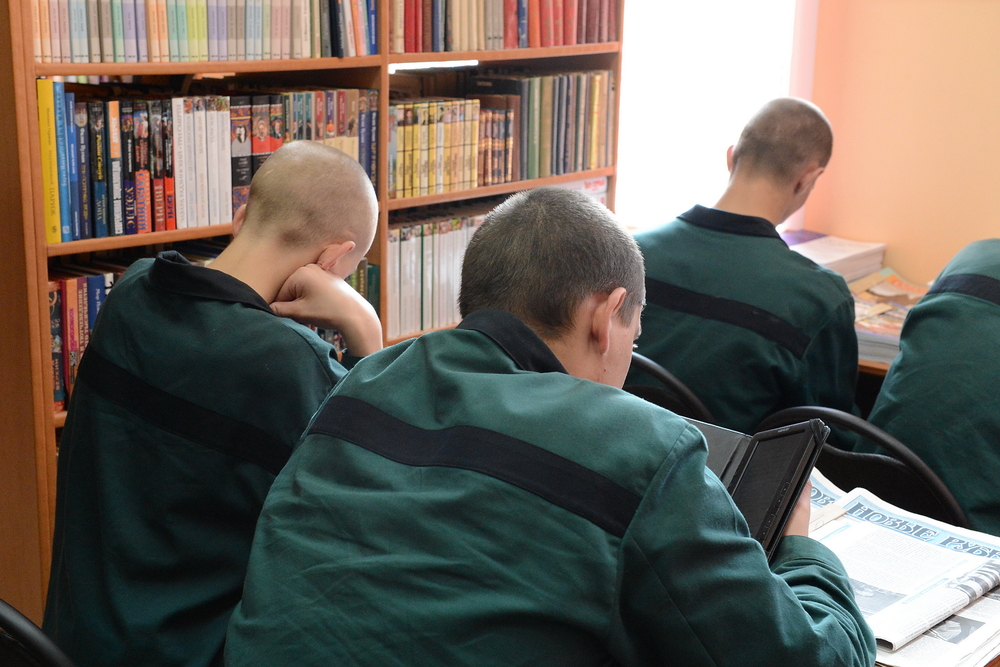Do murderers and criminals deserve a free education? Is there a certain level of morality that is corrupted by providing a free education to criminals? These are some of the questions that are explored in this episode of EconTalk. EconTalk host, Russ Roberts, talks with Max Kenner, founder and executive director of the Bard Prison Initiative, a program that offers college degrees to prisoners, about the program and how it functions.
Kenner discusses the Bard Prison Initiative and the profile of the program as it was depicted in a four-part PBS documentary titled College Behind Bars. Roberts questions the portrayal of the program in the film, the actual experience of the students, as well as the moral and financial arguments about whether a program like this is ethical and beneficial. Let’s hear your perspective on the education of incarcerated people. Answer our questions in the prompts below, or use them to start a conversation with friends offline.
1-Roberts mentions his dislike for the phrase ‘liberal arts education.’ Do you agree with his definition of a ‘liberal arts education?’ How do you think his view of a liberal arts education differs from others’ views? How is this relevant to the conversion of incarcerated people getting an education? Do you think this program is reflective of the overall goal of the American prison system? Explain.
2- Roberts suggests cynics may view this program as relatively pointless. It is not a program that can help all prisoners in the US, and in reality it has only helped a few hundred people. Do you agree with this point of view or do you agree with Roberts that helping even just one person to ‘transform’ is worth it? How do you feel about the funding of such a program? Should people be upset that criminals are being ‘rewarded’ with a free education, while other people who haven’t committed a crime have to pay for an education? How might your perspective change if the program is privately or publicly funded?
3- When further discussing the importance of a liberal arts education, Roberts asks Kenner a very interesting question: “Why should people who got no education, real education, growing up, who made a mistake or were treated horribly by the criminal justice system in the absence of a mistake, why should they study Homer, Shakespeare, and these other things? Why wouldn’t we give them a trade so they can thrive after they leave prison?” How did Kenner respond to these questions? How would you respond to these questions?
4- “Man wants liberty to become the person he wants to become.” Roberts mentions this James Buchanan quote in the context of ‘interior freedom.’ What does Kenner mean by ‘interior freedom?’ Why is this concept so important in relation to the education of incarcerated peoples?
5- Roberts and Kenner talk about the importance of learning things with other people. Why is this such a profound reason for having a chance of getting a liberal arts education in prison? Roberts mentions an example from the documentary of some inmates memorizing the opening paragraph in Moby Dick. What does Roberts have to say about memorization? Does this reflect some idea of community? How does this relate to the question of whether educating criminals is beneficial?


Comments are closed.